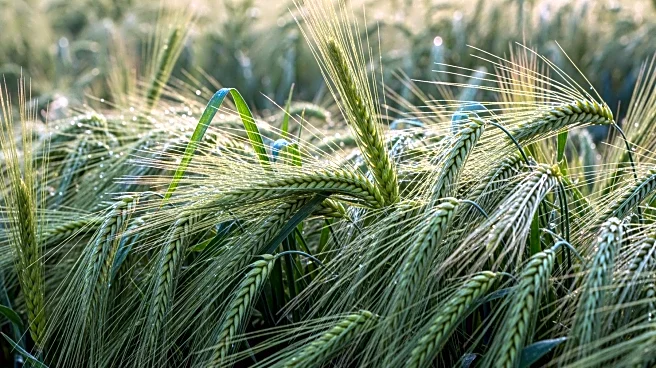What's Happening?
Research conducted by Southern Illinois University has found that winter barley is more effective than cereal rye in suppressing weeds due to its allelopathic properties. Allelopathy refers to the ability
of plants to produce compounds that inhibit the growth of other plants. Winter barley releases more allelopathic compounds than cereal rye, making it a potent option for weed control. This discovery is significant for farmers in Illinois, where cover crops are planted on approximately 2 million acres. Proper management of these crops is crucial to prevent negative impacts on cash crops like corn.
Why It's Important?
The findings offer farmers an alternative to cereal rye, which can negatively impact corn germination due to its allelopathic effects. Winter barley's superior weed suppression capabilities could lead to better crop yields and reduced reliance on chemical herbicides. This research supports the diversification of cover crops, which can help prevent the buildup of pathogens and improve soil health. The economic impact of weeds like waterhemp and Palmer amaranth in Illinois fields underscores the importance of effective weed management strategies.
What's Next?
Field trials on winter barley and its allelopathic compounds are ongoing, with data from the 2025 growing season showing promising results. Researchers will continue to explore the potential of winter barley as a cover crop, aiming to provide farmers with more sustainable and effective options for weed control.









